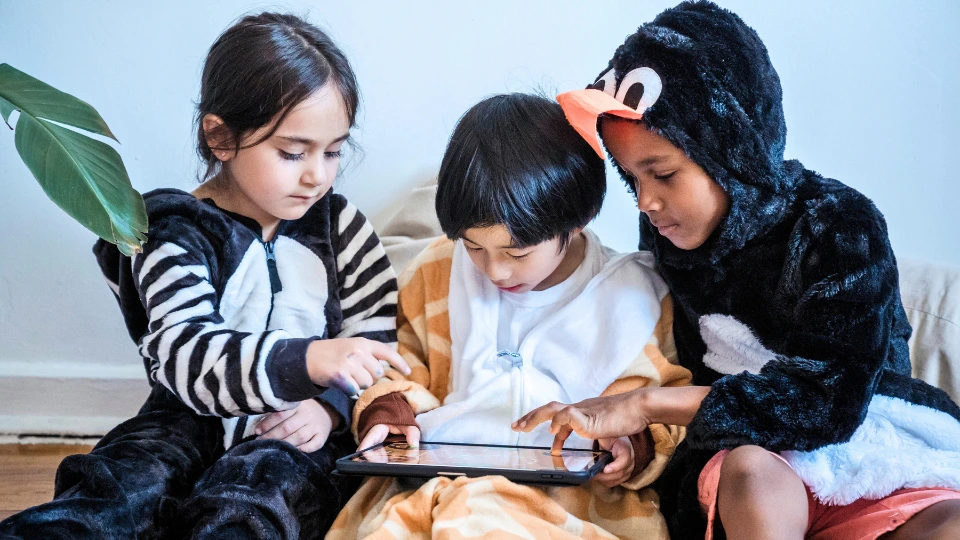Digital citizenship for kids: Nurturing responsible online behaviour and cyber safety
In today’s world, it is more important than ever for kids to learn how to be responsible digital citizens. With the increasing use of technology, kids are exposed to a wide range of online content and experiences. This can be both positive and negative, and it is important for kids to be aware of the risks and how to stay safe online.
With the increasing use of smartphones, tablets, and computers, it has become essential to educate kids about digital citizenship. Digital citizenship goes beyond technical skills; it encompasses responsible online behavior, cyber safety, and ethical use of technology. This article delves into the significance of teaching digital citizenship to kids, exploring strategies to ensure their online experiences are safe, respectful, and constructive.
What is digital citizenship
Digital citizenship is the ability to use technology responsibly and ethically. It is about understanding the rights, responsibilities, and privileges of being a member of the online community. It entails teaching children to be good digital citizens, demonstrating integrity, empathy, and critical thinking in their online interactions. By cultivating these qualities, kids can navigate the digital world confidently and responsibly. Digital citizens are aware of the risks of online activity and take steps to protect themselves. They also use technology in a way that is respectful of others and promotes a positive online environment.
Why is digital citizenship important for kids
There are important reasons why digital citizenship is important for kids. First, it helps them to stay safe online. Kids who are aware of the risks of online activity are less likely to fall victim to cyberbullying, predators, or other online dangers. Second, digital citizenship helps kids to develop critical thinking skills. When kids use technology, they are constantly bombarded with information. It is important for them to be able to evaluate this information and identify what is credible and what is not. Third, digital citizenship helps kids to be respectful of others online. Kids who understand the importance of online civility are more likely to use technology in a way that is positive and productive.
What to teach kids to make them a responsible digital citizen
There are areas that need to be specifically targeted for educating young children about digital citizenship. In a broad sense, these include
Navigating the Digital Landscape
- Online Etiquette: Educate children about appropriate online behavior, including using respectful language, refraining from cyberbullying, and being mindful of others’ feelings when communicating digitally.
- Digital Footprint: Teach kids about their digital footprint – the trail of information they leave online. Encourage them to be thoughtful about the content they post and share, as it can impact their reputation and future opportunities.
- Cyber Safety: Instill awareness about potential online risks, such as sharing personal information with strangers, engaging with suspicious content, or falling victim to phishing scams. Teach kids how to identify and avoid potential dangers to ensure their safety online.
Critical Thinking and Media Literacy
- Evaluating Online Information: Teach kids to critically evaluate online information, distinguishing between credible sources and misinformation. Empower them to question and verify information before accepting it as truth at the first sight itself. Educate them how to find genuine sources of information.
- Media Literacy: Foster media literacy by discussing media messages and how they may influence perceptions and beliefs. Encourage kids to be discerning consumers of media and to think critically about the content they encounter. Make them undertand that they should qualify the messages as valuable or unnecessary, and take necessary action, rather then being a vehicle for the dissemination of the messages.
Responsible Use of Social Media
- Privacy Settings: Show and explain children how to set appropriate privacy settings on their social media accounts to control who can see their posts and personal information. Provide them guides and tutorials that can help them understand what does the individual settings mean.
- Consent and Respect: Teach kids about seeking permission before sharing others’ pictures or information and respecting their friends’ boundaries and digital privacy.
- Positive Digital Footprint: Encourage kids to contribute positively to online communities, engaging in constructive discussions and supporting their peers. There a platforms that contain valuable information from the community-being an active and genuine member mean positive networking.
Encouraging Open Communication
- Establish Trust: Create an environment where children feel comfortable discussing their online experiences and concerns without fear of judgment. Wherever necessary, educate them about the age appripriateness of the content.
- Reporting Inappropriate Content: Teach kids how to report inappropriate behavior or content they come across online, empowering them to take action when necessary. Make them understand to avoid harmful and derogatory contents, games, media and so on.
Setting Screen Time Limits
- Balance and Moderation: Encourage a healthy balance between screen time and other activities, such as outdoor play, reading, and spending time with family and friends. Involving kids in sports is a great idea.
- Family Agreements: Involve kids in setting screen time limits and developing a family agreement on technology usage, fostering a sense of responsibility and accountability. Establish hours or times that are free from digital distractionn, for example, a family dinner without a digital encroachment.
These are a few things that should be mandatorily taught to young minds when they start their digital journey at an early age.
By nurturing responsible online behavior and cyber safety through the combined efforts of the kids, parents, and teachers, we can create a positive digital environment for children. Digital citizenship education equips students with the necessary skills to navigate the online world responsibly and ethically, ensuring their safety and well-being.
Certiport, a subsidiary of Pearson VUE, is a leading provider of certification exam and learning services. Their IC3 Spark and IC3 Digital Literacy Certifications are proven to bring in the much required organised learning in digital citizenship for children and adults. These are world renowned programs, and the latest Global Standard Six covers the following in much detail for all ages.
- Technology Basics
- Digital Citizenship
- Information Management
- Content Creation
- Communication
- Collaboration
- Safety and Security
Check our more about IC3 Digital Literacy at the official website.
Augment Edutech runs online classroom programs as well as provides self-paced programs aligning with IC3 Spark and IC3 Digital Literacy for your kids as well as all ages so that you get a much structured learning about being digital from the very start. Contact us over a call or WhatsApp at +91 96676 07770 or +91 98119 75270 to find out more about it and how we can help you to being your technology learning stream in a much structured and efficient way.
Schedule a free trial class with us
Check out our other exciting programs at www.augmentedutech.com





Pingback: The Enchanting Adventures of Smart Sam - Exciting Story
Well-organized and informative, presenting the content in a structured manner that enhances reader comprehension.
Insightful and detailed, offering in-depth analysis and valuable insights that enhance reader understanding.